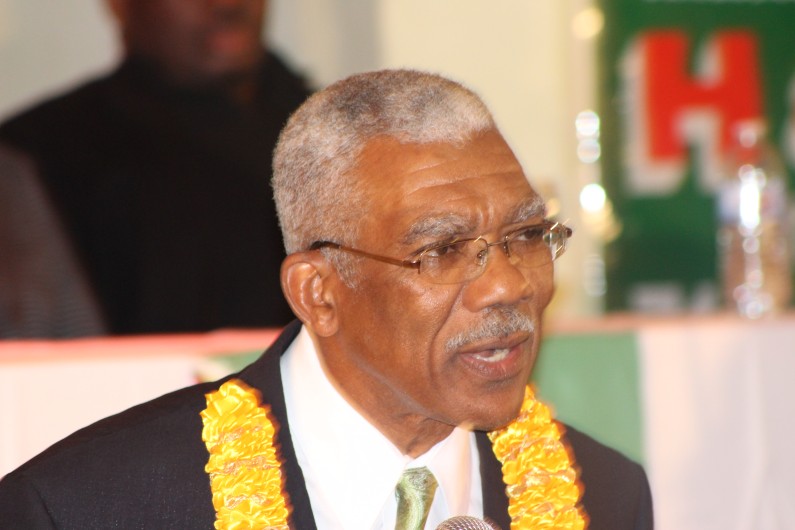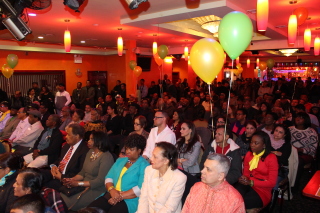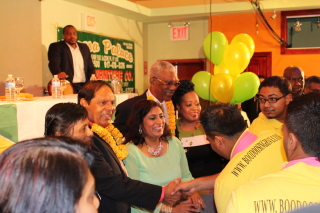Surely the PNC in 1970 was not the PNC in 1988, and is not the PNC in 2015
Is political analysis best left to historians and those who study political theory? If the answer is yes, then no one will accept that, because not only is it chauvinistic but one is bound to ask the question – why can’t an editor or a long-serving state actor though not trained in political theory, make learned analysis about political developments in his/her country.
There are always the weak points that show up though, when others not schooled in history try to interpret current political issues without regard to the main ingredients in history.
PNC member Sherwood Lowe rightfully took issue with the Stabroek News over its July 26 editorial which included the following statement about the PNC, “As it is they run the danger of reviving a deep-rooted fear in some segments of the population, that no matter what is said to the contrary, the old PNC’s penchant for the authoritarian approach is still alive underneath the surface.”
The historian is bound to disagree with Stabroek News’ assessment. The weak points are too glaring. First, the PNC of 1970 was not the PNC under Hoyte. The PNC under Hoyte proved to be the most fair-minded government Guyana produced (with some bad areas of course like neglect for the African–Guyanese in the public service and sugar workers). The theory just cannot hold up that we in Guyana have to watch the PNC in the coalition regime at the moment because lurking around is the old PNC’s inclination to hog power.
But the PNC under Hoyte did not hog power, it in fact gave it away to the PPP. How then can one refer to the old authoritarian approach of the PNC that may still be around?
I doubt any other party would have conceded power the way Hoyte did in 1992. It was under Hoyte that the Chairman of the Elections Commission came from the nomination of the opposition parties. It was under the PNC Government during the Hoyte era that a Vice-President was charged for alleged criminal behaviour. It was the PNC Government that gave permission for the registration and legalization of the Stabroek News.
One must compare the PNC’s concession to Jimmy Carter as against Jagan’s refusal to leave government after he lost the elections in 1964. It was under the PNC Government that the enormous tentacles of the state were curtailed. The PNC Government from 1987 to 1992 removed the prodigious control of the PNC Government of the economy. Certainly this could not have been a party that has inherent authoritarian tendencies. When one examines the divestment policies in the Economic Recovery Programme under the PNC administration, 1985-1992, the power of the PNC in both the government and the society were reduced to a mere footnote. That is a contradiction if one accepts the Stabroek News’ position that the PNC has old tyrannical habits.
Secondly, the Stabroek News contends that there is a “deep-seated fear” in some segments of the country about the PNC’s dictatorship instincts. The obvious rebuttal to that point is in the form of a question – which segment of the Guyanese citizenry feels so? The editorial is pointing to sections of the East Indian population. Those sections will see the PNC in the same way they saw it even if the PNC leaders all become Popes and Saints.
Thirdly, isn’t the Stabroek playing the Draculean ethnic game? I doubt very much that in 2015 even two percent of the African people of Guyana see an authoritarian temptation lurking inside the PNC. It means then we are using ethnic criteria to judge the PNC in 2015.
Fourthly, depending on the methodology one uses, one will see an unchanging PNC from 1957 onwards. The facts to repel such arid theorizing are mountainous. If the essentialist approach in studying the PNC is ditched in preference for the dialectical method, then the PNC of the seventies is long gone. Even in terms of personalities, only two figures from that era are actively around – Hamilton Green and Oscar Clarke. Both have no authority in shaping the anatomy of the PNC.
Four graphic facts point to a politically superior PNC that has left the autocratic ways of the seventies. One is the Hoyte Government. Two is the Corbin decision to merge the PNC with other groupings. Three is the open challenge for leadership within the PNC which led to stalwarts like Faith Harding being openly critical. Surely, dictatorial entities do not go in that democratic direction.
Finally, the Granger/Harmon leadership is a far better organism than when the PNC existed in the seventies.







